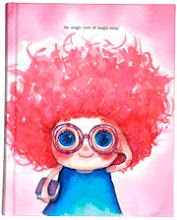
A woman attired in a flamboyant zebra-striped flowing top came up to the counter at work this evening. With directed zeal, she inquired whether we had Robert’s book
Shantaram in stock. I replied with a “no”. She was the 5th customer who had asked me that question during the day. Only a few minutes later, a gentleman purchased a card. He asked me why we didn’t have his book in store. Indeed, it was the author himself. He seemed an interesting character, so I must check it out when it comes in.
Recently at uni we met Kim Scott, the author of
Benang. Laborious but rewarding is how I would describe Benang. Enjoyment wasn’t easily derived from this fragmented novel about the ‘first white man born’. The novel, which transcends linear narrative and chronological time, is told from the perspective of Harley, a product of Aboriginal assimilation. Harley struggles to unearth the past and explore his Nyoongar heritage. The novel makes for particularly interesting reading due to the interspersion of material from historical archives. Factual moeties work to challenge the grain of ideological progress. Dealing with the “possibilities of place” this Miles Franklin winner is a challenging read, but interesting if you can suspend your reader expectations. Scott’s lecture – although abstract – was engaging and definitely helped me to appreciate the sense in which one should approach and interpret a novel so resistant to traditional narrative structure.
In the vein of ‘meet the author’ I thought I’d introduce you to a fantastic Queensland poet, Samuel Wagan Watson. I discovered him at Bookslam, the literary nightclub I attended earlier this year. Although many of his books are out of print, L and I ordered a copy of his anthology
smoke encrypted whispers. His writing buzzes with urbane imagery. His poems draw on a thematic reservoir of restlessness, contemporary dreamtime, liaisons revisited, and foment of childhood wonder. Here is “white stucco dreaming”, one of the poems that Watson read aloud. If you get a chance to hear him read his work, go along, because his strong and passionate vocalization will shape the way you read his work.
White stucco dreaming
sprinkled in the happy dark of my mind
is early childhood and black humour
white stucco dreaming
and a black Labrador
an orange and blck panel-van
called the ‘black banana’
with twenty blackfellas hanging out the back
blasting through the white stucco umbilical
of a working class tribe
front yards studded with old black tyres
that became mutant swans overnight
attacked with a cane knife and a bad white paint job
white stucco dreaming
and snakes that morphed into nylon hoses at the terror
of Mum’s scorn
snakes whose cool venom we sprayed onto the white stucco,
temporarily blushing it pink
amid an atmosphere of Satuday morning grass cuttings
and flirtatious melodies of ice-cream trucks
that echoed through little black minds
and sent the Labrador insane
chocolate hand prints like dreamtime fraud
laid across white stucco
and mud cakes on the camp stove
that just made Dad see black
no tree safe from treehouse sprawl
and the police cars that crawled up and down the back streets,
peering into out white stucco cocoon
wishing they were with us.
 My boyfriend, sadly, is working away on an oil rig this Christmas. So, he got me to unwrap my presents early. He got me the perfect combination – a picnic blanket and a copy of Nabokov’s Pnin so I can sit and read one of the novels I love. A great gift indeed!
My boyfriend, sadly, is working away on an oil rig this Christmas. So, he got me to unwrap my presents early. He got me the perfect combination – a picnic blanket and a copy of Nabokov’s Pnin so I can sit and read one of the novels I love. A great gift indeed!
































